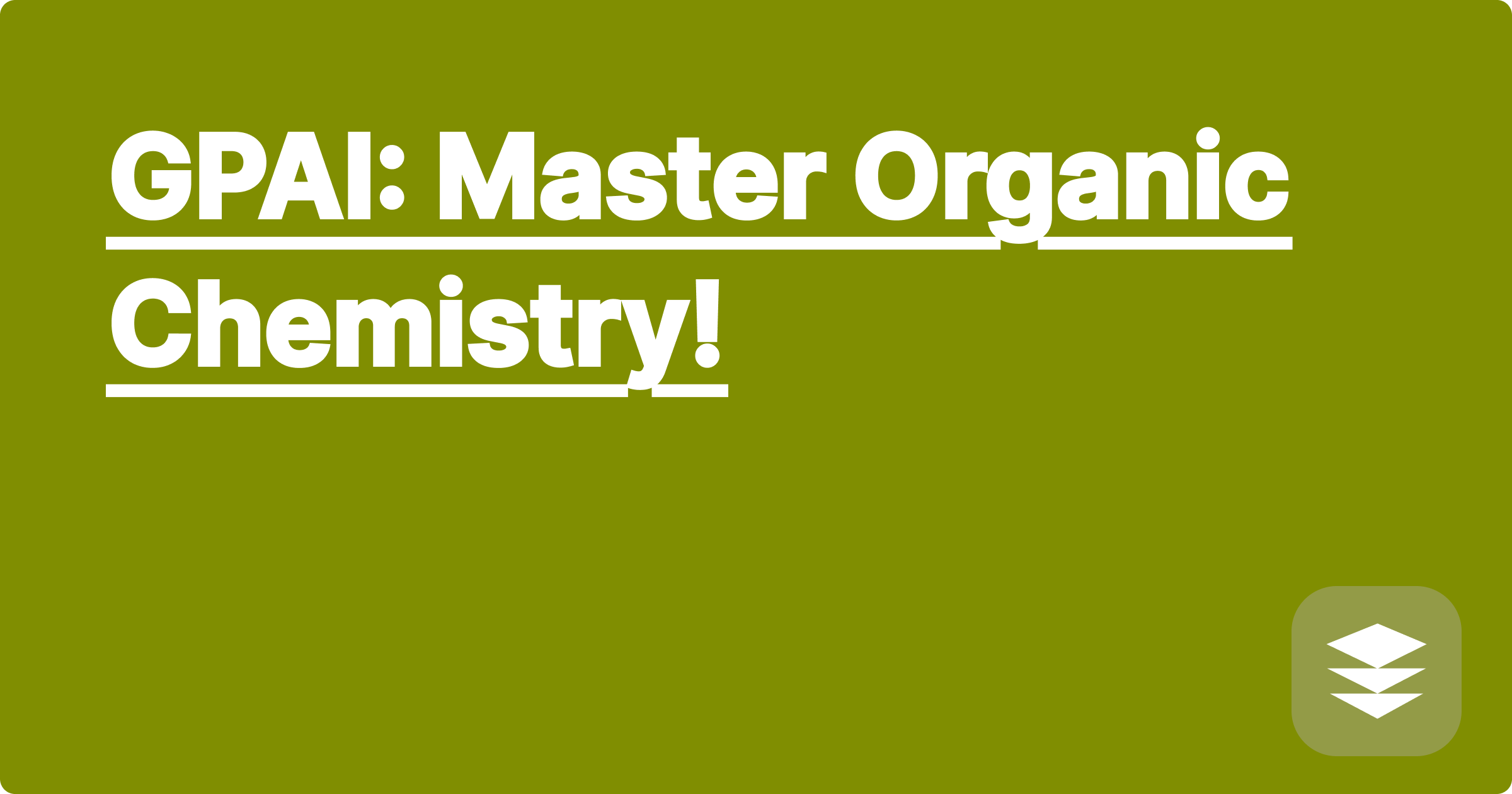
Organic chemistry, often dubbed the “weed-out” course, presents a formidable challenge for many STEM students. Its intricate web of reactions, nomenclature, and mechanisms can feel overwhelming. However, the rise of generative pre-trained AI (GPAI) offers a powerful new toolkit for navigating this complex subject. AI can provide personalized tutoring, generate practice problems, and offer novel ways to visualize and understand difficult concepts, transforming the learning experience.
This shift towards AI-assisted learning has significant implications for STEM students and researchers. Mastering organic chemistry is crucial for careers in medicine, pharmaceuticals, materials science, and many other fields. GPAI can help level the playing field, providing students with access to personalized support that might not otherwise be available. Furthermore, these AI tools can accelerate research by assisting with literature reviews, predicting reaction outcomes, and even designing new molecules.
Organic chemistry is inherently complex due to the unique behavior of carbon. Carbon's ability to form four bonds allows for an immense diversity of molecular structures, leading to a vast array of reactions and properties. Students must grapple with concepts like stereochemistry, reaction mechanisms, spectroscopy, and synthesis, all of which require significant spatial reasoning and problem-solving skills. Traditional learning methods often rely on rote memorization, which can be inefficient and lead to a superficial understanding of the underlying principles. The sheer volume of information can be daunting, making it difficult for students to connect disparate concepts and apply them to new situations.
AI tools like ChatGPT, Claude, and Wolfram Alpha offer a dynamic and interactive approach to learning organic chemistry. ChatGPT can be used as a virtual tutor, answering specific questions, explaining complex concepts in simpler terms, and providing personalized feedback. For instance, a student struggling with SN1 and SN2 reactions can ask ChatGPT to explain the differences between these mechanisms, provide examples of each, and even generate practice problems to test their understanding. Claude can be used in a similar fashion, offering detailed explanations and generating diverse examples. Wolfram Alpha excels at providing factual information, such as physical properties of compounds, spectral data, and named reactions. By combining these tools, students can create a personalized learning experience tailored to their specific needs.
Begin by identifying the specific concepts or topics that you find challenging. Then, formulate clear and concise questions for the AI. For example, instead of asking "What is organic chemistry?", ask "Can you explain the difference between alkanes, alkenes, and alkynes, and provide examples of each?". This targeted approach will yield more relevant and helpful responses. Next, carefully analyze the AI's response, paying attention to the explanations, examples, and any underlying principles. If the response is unclear, rephrase your question or ask for clarification. You can then use the AI to generate practice problems related to the topic. Work through these problems step-by-step, using the AI to provide hints or feedback as needed. Finally, consolidate your understanding by reviewing the key concepts and creating your own summaries or diagrams.
Suppose you are struggling to understand the concept of resonance. You could ask ChatGPT: "Explain resonance in organic molecules and provide an example using the carboxylate anion." ChatGPT would likely explain how resonance involves delocalization of electrons across multiple atoms and illustrate this with the carboxylate anion, showing how the negative charge is shared equally between the two oxygen atoms. You could further ask for more examples involving different functional groups, such as benzene or amide. Wolfram Alpha can be used to visualize molecular structures and calculate bond lengths, providing further insights into the effects of resonance. For instance, comparing the bond lengths in benzene with those in a hypothetical cyclohexatriene molecule would clearly demonstrate the bond equalization due to resonance.
Another example involves predicting reaction products. You could provide ChatGPT with a specific reaction, such as the Grignard reaction of an aldehyde, and ask it to predict the product. ChatGPT could then provide the structure of the expected secondary alcohol product and explain the mechanism involved. You can even ask it to predict the outcome of variations in the reaction conditions, such as using a different Grignard reagent or changing the solvent.
Integrate AI tools into your regular study routine. Use them to supplement your textbook and lectures, not replace them. Actively engage with the AI by asking questions, seeking clarification, and testing your understanding. Don't simply passively consume the information provided. Use the AI to generate practice problems and work through them diligently. Focus on understanding the underlying principles rather than memorizing specific examples. Connect the concepts you learn to real-world applications to deepen your understanding and motivation. Collaborate with your classmates and discuss the concepts you are learning, using the AI to facilitate your discussions and provide additional insights.
Conclude by exploring the vast potential of GPAI for organic chemistry. Experiment with different AI tools and find the ones that best suit your learning style. Continuously refine your questioning strategies to extract the most valuable information from the AI. Embrace this new technology as a powerful ally in your quest to master organic chemistry and unlock its fascinating world. Remember that AI is a tool, and its effectiveness depends on how you use it. By combining the power of AI with your own dedication and hard work, you can conquer organic chemistry and achieve your academic goals.
GPAI: Ace Physics Homework Fast!
Chem Exam Prep: GPAI's Secret Weapon
Conquer Calculus: GPAI Solver's Power
GPAI: Master Organic Chemistry!
Engineering Data: GPAI's Analysis
GPAI: Your Linear Algebra Ally
GPAI: Conquer Your Stats Exams!